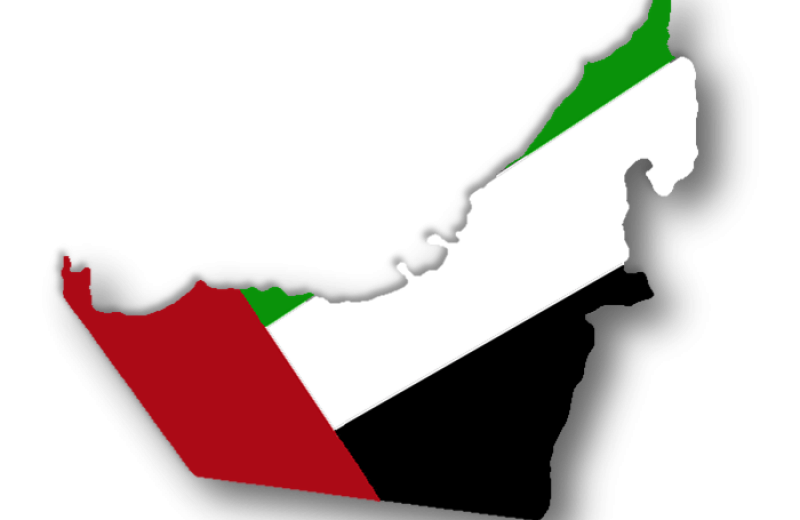 Research
/ Israel and the Middle East
Research
/ Israel and the Middle East
The relations between the United Arab Emirates (UAE) and Israel are primarily characterized by mutual interest and cautious rapprochement steps. The rapprochement can be attributed to the pragmatic character of the two states and their shared interests, including, inter alia, opposition to the Iranian nuclear program, opposing religious extremism, regional trade, modernization processes, handling similar environmental issues, and participation in global events and projects. The cautious approach and the limitations in these relations derive mainly from the UAE’s avoidance of official normalization with Israel due to the latter’s conduct regarding the Palestinian issue.
A research paper that was written on the subject in 2018, in the framework of a Mitvim Institute project on the unfulfilled potential of Israel’s relations with Arab states, outlined how the UAE and Israel cooperate in four central areas: diplomacy, security, economy, and civilian affairs. The paper concluded that, at the date of its publication, there was a large and diverse array of partnerships in the economic sector. The paper also pointed to the fact that most of these partnerships are founded on ad hoc interests and temporary opportunities, and therefore the relationship between the countries cannot be described as consistent or deep. The majority of these collaborations are characterized by secrecy, due to the lack of formal relations or normalization between the UAE and Israel. At the same time, collaborations that take place in international platforms benefit from a higher level of legitimacy and exposure. Examples of this include the joint air force exercises of the two countries together with Greece, Italy, and the US; Israeli athletes’ participation in sporting events that take place in the UAE; and the gatherings of statespersons in various international fora that take place in the UAE. Most of these collaborations stem from the UAE’s desire to expand its role in the international community, and its wish to serve as a hub for international events and conferences. Within this framework, relations between the UAE and Israel have been tested a number of times in recent years, and were eventually strengthened, following the gradual removal of obstacles by the Emiratis.
In 2019, a series of events sharpened the UAE’s focus and priorities: the withdrawal of its forces from Yemen and its efforts to stabilize Yemen’s political system; its involvement in multiple regions, such as Libya and the Horn of Africa; the rising tensions around violent events in the Gulf and the diplomatic measures that the UAE took to pacify Iran; the ongoing crisis with Qatar; and the UAE’s focus on domestic issues, such as the Federal National Council’s elections and efforts to expand local workforce in the labor market. These changes of focus led, inter alia, to the marginalization of the Palestinian issue in the UAE’s foreign affairs during the last year. The UAE’s involvement in the Palestinian arena was, in the last year, rather distant and symbolic, with continued humanitarian aid via UNRWA and the support of Mohammad Dahlan (believed to be a protege of Mohammed bin Zayed and the UAE’s main channel to the Palestinians). Additionally, the enduring participation of the Palestinian Nusseibeh family in senior positions in the UAE (Zaki Nusseibeh as a government minister, and his daughter Lana Nusseibeh as Permanent Representative to the UN) serves as another manifestation of the UAE’s solidarity with the Palestinians, though in their own territory.
The rather marginalization of the Palestinian issue was also manifested in a significant decline in statements of support for the Palestinian cause, and in decreased concrete involvement (or involvement attempts) in this arena by the UAE. The extent of the UAE’s support and commitment to the national struggle of the Palestinians is in dispute between researchers and policymakers. Though the decline in the UAE’s active involvement in the Palestinian issue does not necessarily attest to a decline in its commitment to the Palestinians. It may be attributed to its inability to exert influence in the Palestinian arena or to the increasing rapprochement between the UAE and Israel. The first aspect can be linked to the important role of Qatar and Egypt in the Gaza Strip, which restricts Dahlan and the UAE’s ability to exert influence in this arena except in unique cases, such as the months following the Qatar crisis in June 2017.
Turning to the second aspect, simultaneously and in contrast with moving away from the Palestinian arena, the UAE has shown greater openness to Israel and Israeli and Jewish audiences this past year. 2019 was characterized by improved informal relations between the countries, and these collaborations increased and became more diverse. The UAE’s decision to allow Israel to participate in Expo 2020 starting October of this year has become the driving force in shaping direct relations between the countries, and continues to shape them in various areas.
This paper examines existing cooperation between Israel and the UAE, and the changes that have taken place in the relations throughout 2019. The paper assesses these changes in four main areas: diplomacy, security, economy and civilian affairs, and briefly describes the main developments in each area in order to point to common denominators and indicate key trends.


